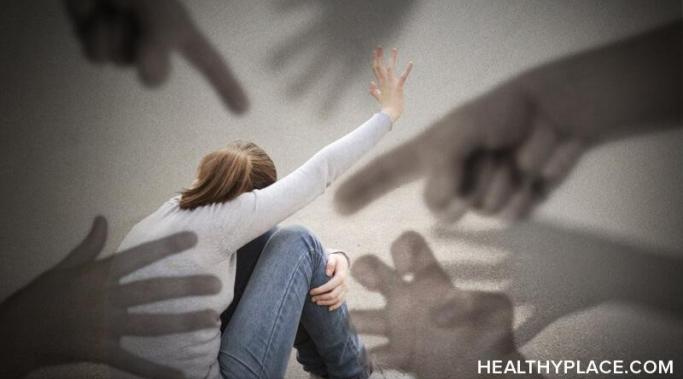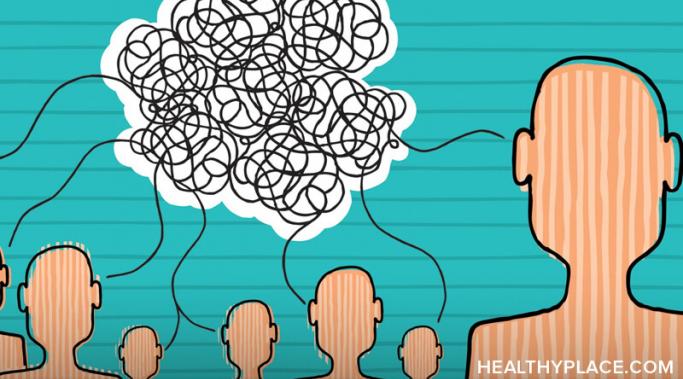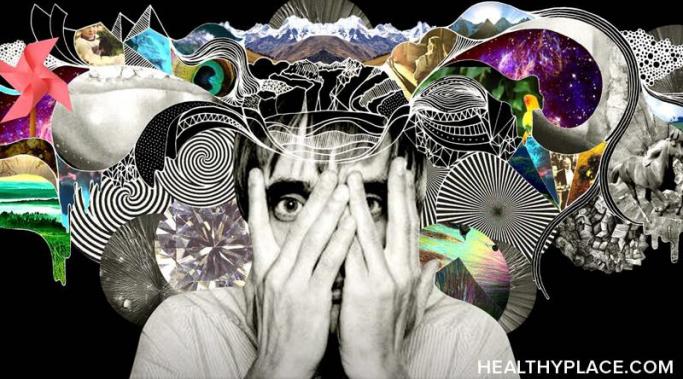Dating with an invisible illness has its pitfalls. When do you tell someone about your illness? When do you explain the impacts your illness has on your life? How do you try to make an invisible illness visible to the person you're dating? My own forays into the dating pool have been making me think about just these questions.
Talking About Bipolar
The word "neurodivergent" is flung around social media and is now very politically correct. For example, it's supposedly okay to call a person "neurodivergent," whereas calling them "mentally ill" will get you social media-canceled. But if people insist on using the term neurodivergent, then let's at least know what it means and how to use it properly.
"He's totally psychotic." "My breakup was totally psycho." How many times have you heard those types of phrases? I've heard it many, many times. While it's pretty common these days to have some knowledge about mental illness terms, psycho, psychotic, and even psychosis tend not to be understood. Let's delve into the meanings of psycho, psychotic, and psychosis, both from a common vernacular point of view and from an accuracy point of view.
Recently, I've had to talk about bipolar as a disability way too much. I talk about it online as part of my advocacy work, but that's not the issue. I have no trouble talking about it in general. The issue is talking about my bipolar as a disability in real life. The issue is talking about it to a psychiatrist, to a family doctor, to a nurse practitioner, to whomever I need to in order to get the help I need.
Let me start by saying I'm not against bipolar disorder support groups. Actually, I recommend them to people and think they can be very helpful. That doesn't mean there aren't drawbacks, however. One of those drawbacks is the spreading of misinformation in bipolar disorder support groups. If you participate in bipolar disorder support groups, it's something you absolutely want to watch out for.
Never tell a person with depression to lighten up. Take my advice here, and just don't do it. There is an infinite number of things to say to a person with depression that is appropriate, but telling a person with depression to "lighten up" is not one of them.
Some people say I'm negative about bipolar disorder. Some people say that calling my bipolar disorder a chronic illness and anticipating the awful effects of bipolar disorder to come is negative. I disagree. I feel that I'm realistic about my own bipolar disorder. Being negative about bipolar disorder is different.
If you feel suicidal in any way, you need to talk to your doctor about your suicidal feelings. Even though suicide conversations -- with anyone -- are scary, you absolutely need to have them. I have had many I know this to be true. Read more on preventing suicides by learning how to have a conversation about suicide with your doctor.
I'm tired of feeling sorry that I have bipolar disorder. I don't mean feeling sorry for myself -- that's a different thing -- I mean feeling sorry for the very fact that I am sick. I mean feeling sorry for the very fact that I am the one with the serious mental illness. And this feeling sorry about bipolar disorder is wearing on one's being. I, for one, don't want to feel sorry that I have bipolar disorder anymore.
People like to criticize me about my bipolar disorder treatment and my guess is, many of you have experienced criticism about your bipolar disorder treatment, too. Sometimes people feel like their criticisms are helpful and sometimes, I swear, the people do it just to be dogmatic or cruel. No matter what their motivation is, though, it isn’t helpful and can be very harmful. If you get criticism about your bipolar disorder treatment, here’s how to handle it.









